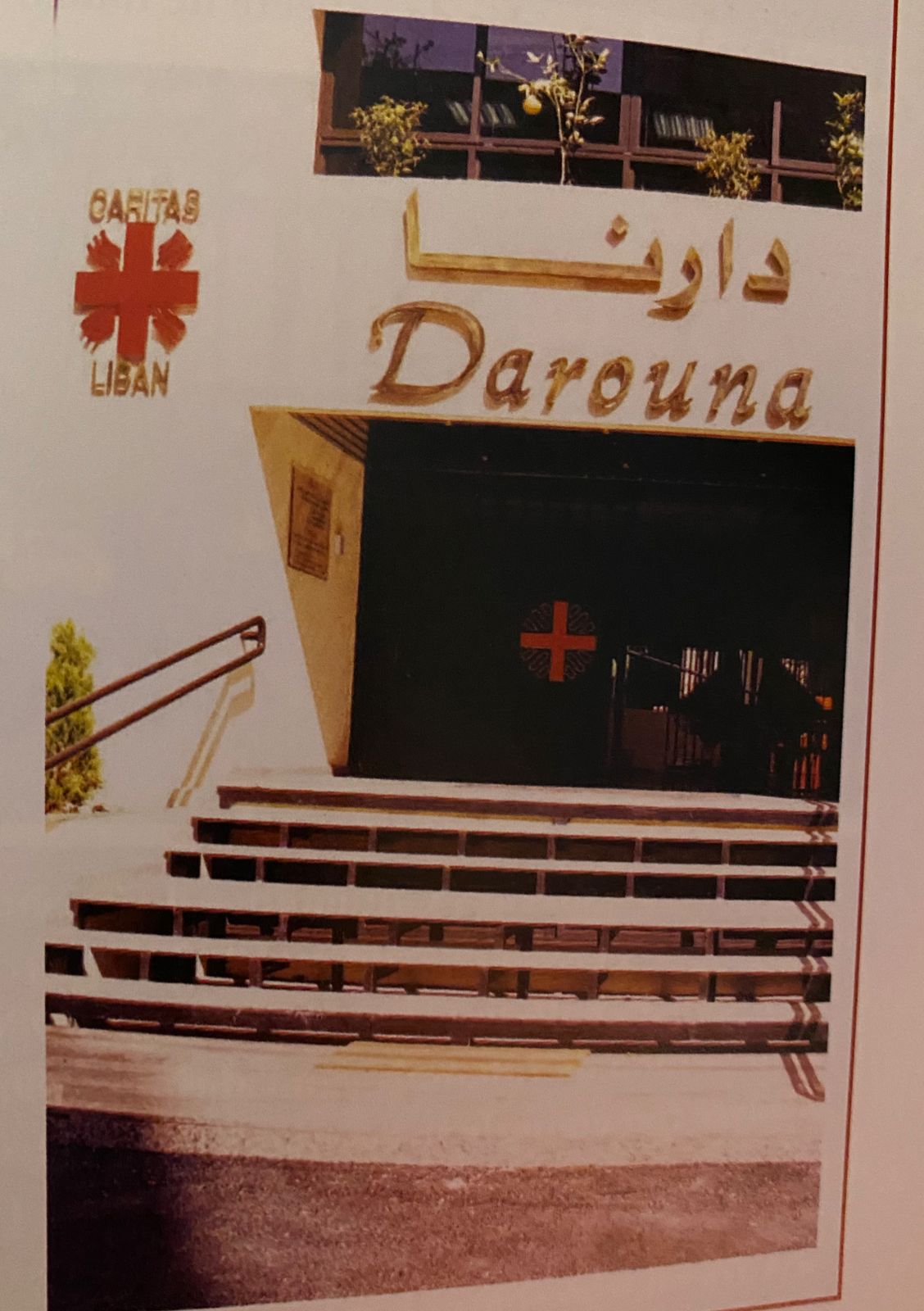
Reference of Social Work In The Face of Crises and Disasters Booklets – Part Two
Researcher – Hiam Samaha Kahi
Research Assistant – Aimee Ghanem
Caritas Liban, whose first branch was established in the south in 1974, had a significant role in relief work across Lebanon. The large number of social workers who worked at Caritas, in collaboration with volunteers and other workers, played a crucial role in launching multiple and various projects, through “districts” that had been working as a beehive since the early stages of displacement, as well as in the ensuing stages, in terms of relief work, material, school, medical and hospital aids, mobile clinics, and socio-economic development.
We shall focus below on some of these initiatives:
- The plight of the south was the starting point for Caritas Liban. The spark of the Lebanese war began in Saida in 1975, and its people knew repeated rounds of
- violence and displacement since that date. Among those who had notable and courageous roles during the war years was Sister Aida Yazbeck, the director of the Caritas Liban Sud at the time, when the biggest challenge was to support the remaining families in their areas of residence to withstand despite the repeated rounds of violence between 1983 and 1990 (events of Al-Shahar and Chouf and then the region of Iqleem Al- Kharoub and Al-Jabal, and then east of Saida and Maghdoucheh), in addition to the repeated Israeli invasions and the tragedies, destructions and deaths left behind. She also contributed to providing shelters to many families who were displaced from Beirut towards the south during the War of Elimination in 1989-1990.
- Sister Yazbeck cooperated with a large and diversified work team, as well as with various governmental, civil and religious institutions and organizations of all sects and affiliations, and worked wisely, courageously and deliberately, in a sensitive political situation, tragic conditions, and dangerous and challenging security conditions. She also assisted in launching the “Youth Volunteers” programme, which contribution constituted an active component in the relief work. Caritas adopted this work style, and it later became the core of social work.
- Another experience during the war was the contribution of a social worker, Sister Aline Afif, who launched the first “elderly club” in Furn el Chebbak which included, in addition to the daily restaurant, medical examinations,
- distribution of medicines, health care services, and humanitarian tasks that matched the needs of that time (cutting hair, nail trimming, and weekly bathing…) in addition to leisure activities that were essential for the elderly who were displaced from their villages. This project has been distinguished by an active contribution from all the region’s stakeholders, including municipalities, civil and non-governmental organizations, and local community volunteers. We all know the impact of displacement on the elderly at this stage as they were feeling the loss of a past that will not return.
- From what Sister Afif said: “Relief work was necessary at one point; if it hadn’t existed these people would have died of hunger. Yet, it could not be a basis for social work… Relief work teaches people to become dependent…”.
- Another initiative addressed by Sister Afif is the issue of marginalized drug users, HIV people and prisoners, as well as her contribution in launching many programmes in collaboration with various institutions such as Oum el Nour Group, the Saint-Charles Addiction Centre, “General Prison Chaplaincy” and other institutions, working on networking between them.
- From what she said: “The beneficiary of the service must become a volunteer …”. She added: “Clarity in vision, prioritization, changing methods according to objectives, impulsiveness and wisdom are essential elements of social work”. She elaborated saying:
- “Religion has never been a barrier to our work at any time…”.
- Another experience must be included in which another social worker, Mrs. Blanche Massaad, who spent 40 years in Caritas and is still working with the same enthusiasm and determination, has played a prominent role in many leading projects and programmes despite the difficulties and obstacles. She said: “I used to work sometimes day and night… I endured the difficulties because I love my job … This required plenty of stability, determination, persistence, cooperation as well as networking with multiple institutions, all in the context of the difficult conditions of war and the danger of inter-regional transport.” She continued:“We tried to do relief work based on the respect for human dignity driven by the idea of reducing the burden and developing people own strengths in their immediate environment”.
- Another social worker’s experience is that of Mrs. Madonna Adass who spent her entire career in the Bekaa and Rashaya Caritas department and had various activities helping families to face tragedies caused by war. In addition to supporting farmers and livestock owners in the aforementioned areas to produce dairy products and distribute them to nearby shops as regions were separated apart. She also had a couple of initiatives establishing local agricultural cooperatives and a pioneering attempt to support and produce aromatic plants to help people to stay in their region. Unfortunately, these initiatives have not
- received sufficient support to be developed.
- Another example is that of Ms. Jeanne Ghostine who spent eight months in Cyprus in 1976 at the request of Caritas officials to follow up on the situation of families who had fled to Cyprus by sea in tragic circumstances at the beginning of the war as a result of violence and shelling, and where they were living in difficult situations in a country they did not know.
- The task of this social worker was challenging; however, she answered the call, leaving her own family in difficult conditions and going after the displaced families in response to her professional duty and dedication to her principles.
Many others supported generously aid efforts during the war period but we could not reach them.